"What I find cool about being a banned author is this: I'm writing books that evoke a reaction, books that, if dropped in a lake, go down not with a whimper but a splash." -Lauren Myracle
It's been an interesting week unlike any other. Sure, we've had our usual slew of daily, fascinating articles here at Starts With A Bang, and like always, you've had a lot to say about them. Here's everything that's gone down:
- How bright is the Earth as seen from the Moon? (for Ask Ethan),
- Ten incredible pictures that showcase astronomy's future (for Mostly Mute Monday),
- Does dark matter exist, or is gravity wrong? The answer lies billions of years in the past,
- What will happen when Betelgeuse explodes?,
- Cutting science funding today costs us more overall, and
- How big was the Universe at the moment of its creation?
We've also got a brand new episode of the Starts With A Bang podcast up: on why Pluto isn't a planet anymore. Have a listen to it now!
And with that out of the way, let’s march straight into our comments of the week!
 Electricity flowing through the human body. Image credit: Youngester of http://technicalstudies.youngester.com/.
Electricity flowing through the human body. Image credit: Youngester of http://technicalstudies.youngester.com/.
From PJ on the passing of Mandozink: "Goodbye Mando. You are once again a part of the universe unfettered by humanity’s foibles."
From eric on the same topic: "RIP Mando, and best wishes to his surviving family."
And Sinisa Lazarek, saying goodbye: "If you were that which you thought off, then again you are never really dead, because the EM waves that made your thoughts are now forever traveling and will travel the vast expanses of Universe, until the end of time."
The "you-ness" of existence is one of the most unique and precious things that we all have. Though we may be made of a huge number of fundamental particles -- perhaps some 10^28 if you add them all up -- it isn't those particles that make us unique. For over our lifetimes, those particles enter, get incorporated into, and leave our bodies. Of all the atoms and molecules that make us up, none of them remain consistently in our bodies over our lifetimes; even our bones cycle through their calcium atoms on timescales of a few years. The only difference between a living and a non-living human is the electrical patterns that run through our brains and bodies, and for comfort, I would always turn to the conservation of energy.
 In this illustration, one photon (purple) carries a million times the energy of another (yellow). Fermi data on two photons from a gamma-ray burst fail to show any travel delay, showing the speed of light's constancy across energy. Image credit: NASA/Sonoma State University/Aurore Simonnet.
In this illustration, one photon (purple) carries a million times the energy of another (yellow). Fermi data on two photons from a gamma-ray burst fail to show any travel delay, showing the speed of light's constancy across energy. Image credit: NASA/Sonoma State University/Aurore Simonnet.
For energy can never be created nor destroyed, but only converted into other forms. And in addition to that, the impact we have on one another can never be undone; quantum interactions see to that. Forever, a state will have been altered by its interactions with anyone and anything that's ever caused a shift in quantum states. We are all affected by our time together.
Rest in peace, MandoZink.
From jonathan on treating one another with respect: "This is one of the very best sites of the English-speaking internet for coverage of cosmology and other fields of science. It’s updated often, with great original content, responding quickly to items in the news as well as providing constant background posts, it’s well written, it’s reliable and authoritative, there’s a real voice to the articles and one senses a principled author behind it. So why is the comment section worse than the randomly selected youtube video? Why does it so quickly degenerate into the worst kind of childish, foul-mouthed lashing out?"
It only takes a few bad apples to spoil a bunch, and in the case of a comments section on a blog, only a few (or even one) foul-acting commenter. I would like to think it goes without saying that name-calling is off limits, and that people could just be decent to each other. Clearly, I have to enforce this, which I hate doing, because it means I have to spend my energy not on talking about the science I'm so excited about, but on playing "classroom manager" which is fairly soul-crushing to me.
But perhaps all it will take is a small amount of this until the bad actors get themselves banned entirely or shape up, and then we can go back to the comments section we all wish we had. That's the goal, and I very much appreciate all of you chiming in.
From Denier on sea level rise: "The economic costs of ignoring climate change? Paltry. Even if the climate alarmists are on the nose with their numbers it pales in comparison their proposed changes could inflict on the economy. The most costly natural disaster in US History was Hurricane Katrina at ~$100 Billion dollars in damage. In the Great Depression, even after all the New Deal fixes, we were 27% below the GDP trend. There was a much larger initial GDP drop but for ease of math we’ll ignore that. Our GDP now is ~$17 Trillion. That would come to a loss of $4.6 Trillion dollars in yearly damage. We could get hit by 45 Katrina level disasters every year and the storm disasters would be cheaper. Not even Al Gore thinks we’re going to get hit with 45 Katrina storms next year. The cost comparison isn’t even close."
Okay, then, what would you quantify as a cost-comparison between hurricane Katrina -- which you gave a figure for -- and the loss of all the inhabited, infrastructure-built land in our country that will be affected by sea level rise? How many feet of rise will it take for you to give an estimate? If we go the full 8 meters, how much of a loss would you quantify the loss of all of southern Florida, of much of the US's shores, of all of Manhattan, of even the land just beside the rockies? You have shied away from quantifying the dollar value-cost of global warming, and yes, it's not happening next year. But you are talking about your four-year-old's future that you're concerned with. What will the dollar value of our global inaction be, per year, 50 years from now? Or 75? or 200?
You know the phrase "a stitch in time saves nine?" Or "an ounce of prevention is worth a pound of cure?" This is one of the most extreme examples of exactly that... and it's up to us to act now to avoid the largest disaster possible, because we are barreling towards it full steam ahead.
 The first view with human eyes of the Earth rising over the limb of the Moon. Note how bright the Earth appears in comparison to the Moon. Image credit: NASA / Apollo 8.
The first view with human eyes of the Earth rising over the limb of the Moon. Note how bright the Earth appears in comparison to the Moon. Image credit: NASA / Apollo 8.
From John on the full Earth as seen from the Moon: "More than an order of magnitude brighter that what we see!"
What's pretty remarkable is that if you were on the near side of the Moon, you'd always have either the Earth or the Sun (or both) in your skies; it would never appear as dark as night here on Earth gets because of the Earth's incredible brightness relative to the Moon. Yes, a factor of ~30-55 depending on cloud cover is impressive, but the fact that it would be continuous is something worth considering, too!
From Wow on how to not behave, in exemplary fashion: "Another moronic post from you, teabaggie. You have nothing to say and nothing to add but do so anyway, because you’re a retard."
Honestly, that this was the follow-up comment you left to John's previous comment is worthy of being banned all on its own. Why you would do this? I don't know the internal issues you have that cause you to lash out like this, and I don't know why you think it's acceptable, and now that others have pointed it out, I don't know why I've allowed it to go on for so long.
Knock it off, forever, and if that means you won't have anything to say because you can't say anything without an invective like this, your silence will be appreciated much more than this hateful drivel.
From Peter on the dreams of being an astronaut: "I dream about this, to see the Earth from the lunar surface."
I think that's a wonderful dream. There are so many wonderful and wondrous sights to view here on Earth, but none are more foreign to our experience -- and rare, from a human perspective -- than to see Earth from the surface of another world. Only from the Moon would it appear as anything more than a point to our eyes, and yet, from that one location, it would appear as spectacular as your dreams allow. I love it here on this world, and this will always be my home. But to journey into space to take in the view, even once, would be a thrill of a lifetime unlike any other.
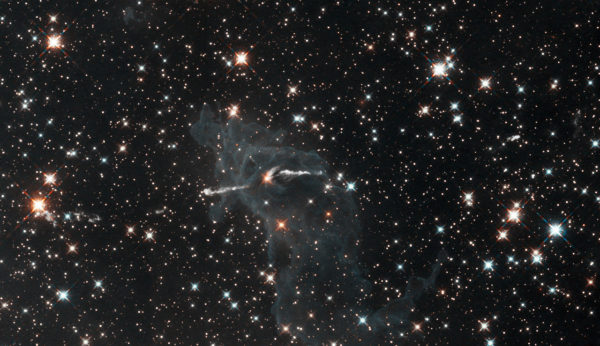 Taken in infrared light, the image shows the dense column and the surrounding greenish-coloured gas all but disappear. Only a faint outline of the pillar remains. By penetrating the wall of gas and dust, the infrared vision of the Wide Field Camera 3 (WFC3) reveals the infant star that is probably blasting the jet. Image credit: NASA, ESA and the Hubble SM4 ERO Team.
Taken in infrared light, the image shows the dense column and the surrounding greenish-coloured gas all but disappear. Only a faint outline of the pillar remains. By penetrating the wall of gas and dust, the infrared vision of the Wide Field Camera 3 (WFC3) reveals the infant star that is probably blasting the jet. Image credit: NASA, ESA and the Hubble SM4 ERO Team.
From PJ on ten pictures that showcase astronomy's future: "Stunning ! Thanks, Ethan."
You have to realize the most exciting thing for me in all of this is that the Universe isn't really (or merely) what we see. The Universe as we see it -- or visualize it -- between the wavelengths of 400 and 700 nanometers is only reflective of a tiny portion of what's out there. But if we can take a multiwavelength view, we can see it all: the plasma, gas, dust, stars, black holes and more, of all different temperatures and energies. It's not an easy (or cheap) task, but the reward is a better understanding of our Universe. And so, so worth it.
Schematic representation of rotating disc galaxies in the distant Universe (R) and the present day (L). Image credit: ESO / L. Calcada.
From Patrice Ayme on how MOND could survive this changing-in-time: "If the ESO (European Southern Observatory) illustration turns out to be correct, how could MOND survive? MOND posits that gravity is stronger than the inverse square law. One assumes that this modification of gravity should not vary in time."
The law (or modification) of gravity shouldn't, presumably, change it time... but the distribution of matter can. There's no reason why the outskirts of these galaxies can't be poorer in not only stars but all types of normal matter at earlier times. In other words, rotation speed correlates with surface brightness in pretty much all galaxies, and the MOND advocates explain this change in the perceived law over time as a change in the density of normal matter over time.
If you come up with the right explanation, MOND proves very hard to kill from an evolutionary standpoint. Hopefully, as predictions become nailed down better, this will become indisputable and a much more stringent test.
The nebula of expelled matter created around Betelgeuse, which, for scale, is shown in the interior red circle. This structure, resembling flames emanating from the star, forms because the behemoth is shedding its material into space. Image credit: ESO / P. Kervella.
From Omega Centauri on a whole bunch of supernova questions: "So the current thinking is Antares has a smaller diameter than Betelguese?
Isn’t the core collapse triggered by the loss of thermal energy via neutrino emissions?
What color does a type-II supernova appear to be?"
Antares and Betelgeuse have significant uncertainties in their distances, and hence, their diameters. Within the errors, either one could be larger.
Core collapse is triggered by the end of nuclear fusion in the star's core, where gravitation rapidly overcomes the insufficient radiation pressure. The loss of thermal energy via neutrino emissions helps sustain the reaction for more than an instant, and help it run away. It's more of a help in sustaining the reaction, though, than in first triggering it.
And as for color? Like most of the stars visible to the naked eye, it will be quite white, covering the full gamut of the electromagnetic spectrum. A more complete analysis of color/temperature will hopefully be visible to us directly if it occurs in our lifetime, but those are the expectation.
 The constellation of Orion, along with the great molecular cloud complex and including its brightest stars. Betelgeuse, the nearby, bright red supergiant (and supernova candidate), is at the lower left. Image credit: Rogelio Bernal Andreo.
The constellation of Orion, along with the great molecular cloud complex and including its brightest stars. Betelgeuse, the nearby, bright red supergiant (and supernova candidate), is at the lower left. Image credit: Rogelio Bernal Andreo.
From Wow on whether supernovae will emit gravitational waves: "Unlikely. The mass is still there and still roughly central, so there’s no dipole to radiate gravity waves. So all we’d get is whatever asymmetry happens in the blow up moving the CoG around and a delay to the effect so that we see the center of light move at the same time as the center of mass."
Orion is a messy, star-filled constellation, but the stars themselves are not close enough to one another to cause the emission of gravitational waves with any sort of measurable frequencies, even at these close distances and even with future gravitational wave observatories. But if you're aspherical for any reason -- or if the physics of supernovae is different than what our models expect -- there's a chance. Supernova triggers are expected to be somewhat asymmetrical, but the level of asymmetry and hence the gravitational wave signal is expected to be weak.
 Multiple neutrino events, reconstructed from separate neutrino detectors (akin to Super-Kamiokande, shown here), indicated a supernova's occurrence before any optical signal ever occurred. Image credit: Super Kamiokande collaboration / Tomasz Barszczak.
Multiple neutrino events, reconstructed from separate neutrino detectors (akin to Super-Kamiokande, shown here), indicated a supernova's occurrence before any optical signal ever occurred. Image credit: Super Kamiokande collaboration / Tomasz Barszczak.
Early models, in perhaps the 1990s, thought differently. As it is now, Betelgeuse is thought to be a single star with no companion that rotates quite slowly, and hence is quite spherical. The odds for gravitational waves don't look good, but you never know what you might get for a transient signal. If the neutrinos arrive at a very particular time, we'll have a timestamp to look for the gravitational wave signal as well... and that could be fascinating no matter what the outcome is!
The 2010 NASA mission timeline had James Webb launching in 2015. If that were the case, and if insufficient funding were not provided during two critical years, we would have collected over a year's worth of data from it already. Image credit: NASA's Astrophysics Division.
From eric on cutting basic science funding: "In addition to the issue that shutting down ongoing projects greatly increases the cost to (eventually) complete them, I worry about how big a hit there will be to basic science, and thus the long-term US ability to produce innovation and new products."
This is absolutely a worry, and I would also like to highlight that this has been an ongoing problem since the Clinton years of the 1990s. The mandates that government research needs to address an aspect societal, industrial or commercial need in the near-term future has meant a dramatic reduction in long-term, potentially useless and fundamental research. This is something that should go beyond politics; Ronald Reagan approved the superconducting supercollider, Bush Sr. continued it, Clinton killed it. There's more to the story than that, but yes, basic science has taken tremendous hits, and the hits just keep on coming. For the next four years, I expect them to come fast and furious, and it's up to us all to fight to keep what we have and grow what we need.
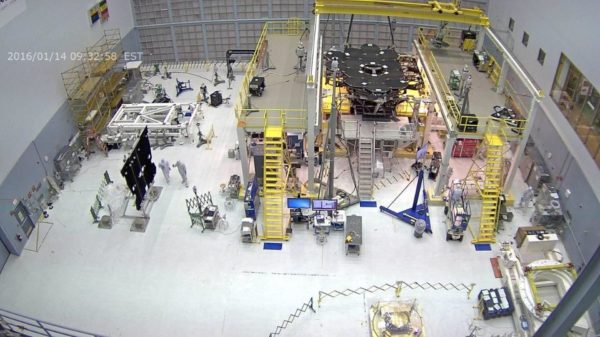 A significant fraction of the scientists and engineers pictured here, in the 2016 installation of the final mirrors, were replacement hires for the originals who were laid off five to six years prior. Image credit: NASA.
A significant fraction of the scientists and engineers pictured here, in the 2016 installation of the final mirrors, were replacement hires for the originals who were laid off five to six years prior. Image credit: NASA.
From Frank on who's to blame for anti-science sentiment in America: "I think popularity of anti-science today shows a failure of science education for a long time."
I am a bit bewildered by this. If anti-science sentiment is so popular, why do you blame the largest pro-science force in this country -- this underfunded, near-volunteer force that has to fight against all sorts of politics, ideology and misinformation -- for not achieving total victory in a practically hopeless battle situation? That's like blaming Poland for not stopping the Nazis in 1939, blaming the egg council for not stopping obesity, or blaming the EPA for not stopping the pollution of municipal water supplies. You can only stop what you have the power to stop. They should be lauded for the victories they achieved and the valiant fight they put up despite facing overwhelming odds. If you want to aid a good cause, don't start by pointing fingers to how they haven't managed to defeat all the enemies of science that exist.
Illustration of the density (scalar) and gravitational wave (tensor) fluctuations arising from the end of inflation. Image credit: National Science Foundation (NASA, JPL, Keck Foundation, Moore Foundation, related) – Funded BICEP2 Program.
From Carl on seeing the edge/beginning of the Universe: "No matter when or where, you can’t see / reach the “edge”. The speed of light creates the walls that forever box us in."
That's true... but you can see past any "light" if you look in gravitational waves. That will literally take you to the edge of the observable Universe, as those waves have moved at the speed of light, unimpeded since the end of inflation. I hope we can detect them in the next 20-or-so years, which we will if the tensor-to-scalar ratio is large enough.
How cosmic inflation gave rise to our observable Universe, which has evolved into stars and galaxies and other complex structure by the present. Image credit: E. Siegel, with images derived from ESA/Planck and the DoE/NASA/ NSF interagency task force on CMB research. From his book, Beyond The Galaxy.
And finally, from Jonathan on the beginning of the Universe: "Reaching back further into the inflationary phase, you say that somewhere between 10^-30 and 10^-35 seconds are “accessible” to us. In which sense is this period of time “accessible”, and how does the size of the universe* at the final instant of inflation depend on exactly how far back into the inflationary phase we can “access”?"
People want there to be a time "t=0" that they can identify as "the beginning" of the Universe, or whatever that means. We used to think that you could just take the expanding, cooling Universe and extrapolate back to a point of infinite density and temperatures, and bam: t=0, beginning of space and time, the birth of everything, etc. But inflation changes all of that.
Now, we have this exponentially expanding, empty space, and only its end where we are gives rise to the Big Bang as we know it. When I say "accessible," what I mean is that the observable Universe -- and the information that's causally connected to us -- all arises from that time period and none of the information from earlier can be obtained by us. That's the end of it, and it's all dependent on the energy scale of inflation, and hence the rapidity of inflation; that's where the primary uncertainty lies.
Thanks for a good week, and let's strive to make all the coming ones better ones!

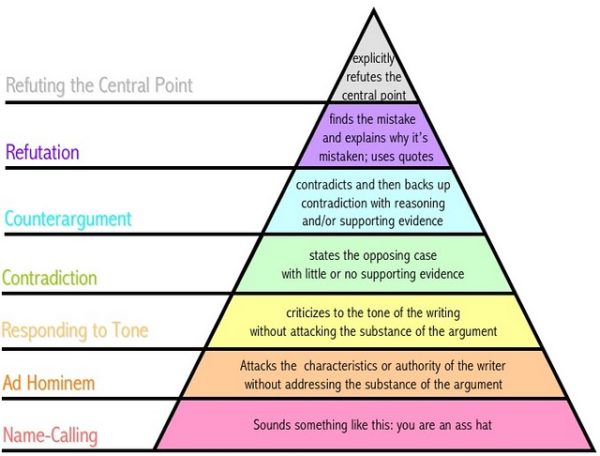
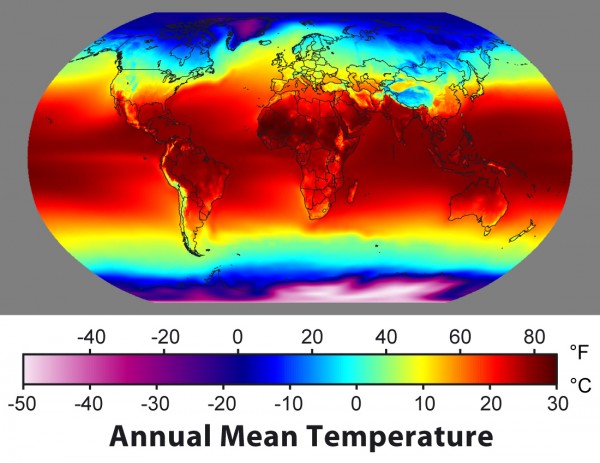
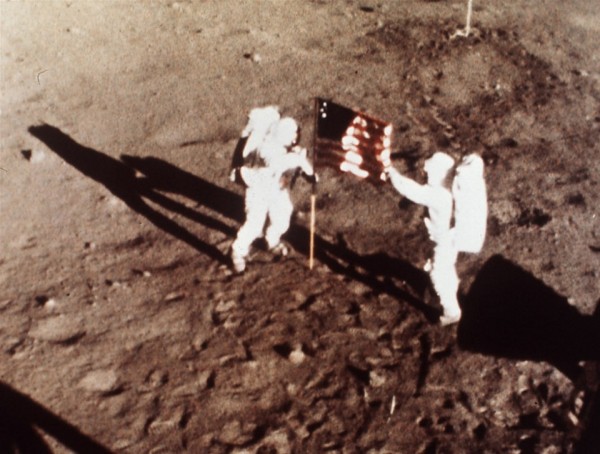
" it means I have to spend my energy not on talking about the science I’m so excited about"
Yeah, you don't, though, do you. One poster asks what you mean and really REALLY only cares about what you mean, but hell, why bother talk about science, eh?
"Why you would do this?"
For being a waste of space.
Oh, and as a reminder yet again, no, you can't shame me with complaining that I'm a potty mouth. A couple of years ago, maybe.
But no, not you, even. So don't waste your breath trying, m'kay?
Near side of moon, bright earth/sun... moon has no atmosphere to diffuse light so sky would still be dark looking even a small angular distance away from the bright object with an instrument with a narrow field of view...
It's not about shaming you. I don't care what your motivations for your behavior are. I care what your behavior is here. So do others, enough to ask me to step in and do something about your treatment of everyone here.
When I was a kid, I'd call your behavior "cruisin' for a bruisin'". I have no desire to harm anyone, but if you can't control yourself (and I'm not sure you want to), a ban will be in your future. I promise.
And you couldn't.
And yeah, violence. Good move, bro.
Where were you when jonathan wanted to know what you meant, hmm?
"I don’t care what your motivations for your behavior are."
cf
“Why you would do this?”
Just sayin'.
Ethan wrote:
First of all, the ocean has been rising for the past 22,000 years. You're not going to stop it no matter what you do. It is currently rising at around 1.8 mm per year. Some places go a little faster and some go slower but 1.8 mm / year is the average. That comes to around 3.5 inches of rise in 50 years. Sooo Scary! Let's destroy the economy immediately.
Being that you are from the general area you should know this but as the ocean has risen over the past couple hundred years Manhattan has been getting bigger. Its shorelines are now over a thousand feet further out in all directions since trading the island for some trinkets. Of course Manhattan's expansion is nothing compared to Boston's but as a species we are clever engineers. Cries that Manhattan is going to be lost to the sea is alarmist nonsense.
...Although I do find the New York waterfront on The Expanse to be fun.
The thing that gets me most about the screeching alarmists is that they don't know what they want. You hear terms like "we have to do something", or "this is a call to action", or "we have to make sure we are heard", or "we have to lobby our representatives", or maybe even "we need to cut our carbon emissions now". It is all generic platitudes.
Ethan wrote:
::sigh::
I truly think it is because those making the most noise on this subject don't know how to put together a business plan. The same skill is needed. If someone actually did put this together it would become immediately apparent that it isn't a stitch in time to save nine. It is decapitation to deal with a headache. Even if the headache is real it is better than the alternative being proposed.
"First of all, the ocean has been rising for the past 22,000 years"
Proof plz.
" It is currently rising at around 1.8 mm per year."
And just because you haven't died yet doesn't mean the sharp stop in the last few feet of your fall won't kill you.
"the screeching alarmists"
That was you, denier. Remember all that stuff about damaging the economy? NWO conspiracy theories?
"those making the most noise on this subject don’t know how to put together a business plan"
There are hundreds. Deniers screech and pull their hair out in how this will ruin their profits.
See, for example, the complaints of the EPA regulating CO2.
From people that include you....
Praise King Trump for Making Space Great Again!!!:
The White House Weekly Address
https://www.youtube.com/watch?v=ZGt6lkLApuo
It is telling that a racist like rt would refer to a scumbag like our current president as "king" - and apparently celebrate a lessening of science funding.
@Wow, @Ethan
Sure. No problem.
https://curryja.files.wordpress.com/2011/07/post-glacial_sea_level.png
I'll give you one more bit of knowledge that Ethan conveniently left out of his previous piece mentioning the melting of the Greenland Ice Sheet, and then again here with his quip of an 8 meter sea level rise:
At the current rate of 220 cubic kilometers per year, or 264 billion gallons of water being lost from the Greenland Ice Sheet [1] it is going to take 13,000 years to melt the 2.85 Million Cubic Kilometer [2] Ice Sheet.
Ethan's 8 meter rise is going to take 13,000 years to happen.
[1]'https://www.jpl.nasa.gov/news/news.php?release=2006-023
[2]'https://en.wikipedia.org/wiki/Greenland_ice_sheet
@ #12 Denier,
It may not seem important, but you should also add in the effect of thermal expansion, from Temp 1 to Temp 2, of the liquid water during the period (whatever that may be) in question. That will add a bit to the sea level rise.
Judith Curry? Really? You couldn't find anyone reputable?
Of course you couldn't. You don't trust those people.
@ Dingaling dean. Sooo when Judith Curry was a globull Nut Job climate change is real you loved her. Now that she has come to her senses for the climate scam going on you despise her.
So typical of you haters on the left that just keep hatin...
@dean wrote:
Would you prefer NASA GISS?
https://www.giss.nasa.gov/research/briefs/gornitz_09/
That the sea levels have risen ~125 meters over the past 20,000 years isn't controversial.
@John wrote
Thermal expansion is the source of virtually all of the sea level rise we are currently seeing. Greenland ice melt is contributing almost nothing (0.2mm / year).
https://en.wikipedia.org/wiki/Ice_calving
Jus sayin.
You DO know that the melting point of ice is 0C, right?
Just checking.
"Would you prefer NASA GISS?"
If you really want to be taken seriously and not for the joke you currently are (and, for some reason, I think you do), places that do real science should be your first go to, and you should stay clear of your fellow deniers (like Curry).
"That the sea levels have risen ~125 meters over the past 20,000 years isn’t controversial."
Your claim was "First of all, the ocean has been rising for the past 22,000 years.". That's not the same.
And did you check the figure beside "Figure at right: Three successive images of an area on the west edge of the Greenland ice sheet taken in June of 2001, 2002, and 2003."?
What do you think is causing such quick increase in the melting area?
You DO know how long it's been there, right?
"Thermal expansion is the source of virtually all of the sea level rise we are currently seeing."
And "Melting" therefore not happening much yet.
Maybe because it takes time for heat to move through 2km of ice depth....
By the way - I'm sure your neglecting to include this
was just an honest mistake.
"Ethan’s 8 meter rise is going to take 13,000 years to happen."
At the rate you've decided.
But ice melts....
@ #17 Denier,
"Thermal expansion is the source of virtually all of the sea level rise we are currently seeing."
OK, I can accept that.
Taking that as given however, the effects of thermal expansion were absent from #12, which associated the melting of the Greenland icecap with the rise in sea level. That exclusive association implied that that melting of the Greenland icecap was the cause of the rise in sea level.
Denier wants to believe what he wants to believe, and he sees whatever helps that appear sane....
Hey Woozy WoWzer. I am going to be in London second week of May for 2 weeks (Will look for those NO GO Zones Myself). I will let you buy me a pint at a pub of your choice..
Woozy:"You DO know that the melting point of ice is 0C, right?"
Umm You do know that ICE FLIPPIN EXPANDS When liquid water is cooled, it contracts like one would expect until a temperature of approximately 4 degrees Celsius is reached. After that, it expands slightly until it reaches the freezing point, and then when it freezes it expands by approximately 9%
@John wrote:
I can see where you are coming from but the comment in #12 wasn't intended to convey the idea of the Greenland Ice Sheet as the source of all sea level rise. It was a direct response to Ethan's jab of:
Which itself was Ethan repeating himself from what he wrote in 'The First Climate Model Turns 50, And Predicted Global Warming Almost Perfectly'
Ethan's original line and the 8 meter callback to it above was exclusive to Greenland. That particular 8 meters would take 13,000 years to come about. The time frame was left out because Ethan was using the line to scare monger and the reality of Greenland's 0.2mm per year contribution isn't scary.
Perhaps I should have been more clear in #12. It was Greenland exclusive because it was in direct response to a 'misleading in its presentation' statistic that was Greenland exclusive.
"Umm You do know that ICE FLIPPIN EXPANDS When liquid water is cooled"
Ummm, you DO know that has nothing to do with phase change, don't you?
Nah, you don't.
"the comment in #12 wasn’t intended to convey the idea of the Greenland Ice Sheet as the source of all sea level rise"
Yes it was.
" How many feet of rise will it take for you to give an estimate? If we go the full 8 meters…"
Which you never answered.
If you gish galloped, how can anyone be taken to task for "mistaking" where you galloped to?
"Ethan’s original line and the 8 meter callback to it above was exclusive to Greenland. "
The earlier in time of which is 100% correct. The second of which in chronology you avoided answering but still claim you did.
"That particular 8 meters would take 13,000 years to come about."
No it wouldn't. Ice doesn't calve easily nor melt rapidly until its bulk is fairly close to 0C. Anyone who has used ice cubes as opposed to crushed ice to cool their summer drink knows this.
Some "forget" when it's convenient.
"The time frame was left out because "
Ice fracture physics is quite difficult and it's not so much a complete melt as structural breakdown leading to ice calving off being the big problem.
Moreover, to avoid this issue would cost LESS than adapting to it. And if it hadn't been you idiots shouting and screaming "NWO! NWO!!!" and "muh tax munny!", it wouldn't have cost a damn thing and we'd be better off (unless you're an executive of an oil company who didn't think it would happen that we'd wean ourselves off the pre-stone age BS of burning things for heat and light).
Ethan: "Why would you do this?"
"This" happened 18th March.
Your appearance to say you were not abandoning the comments section came on 21st March.
When "a concerned citizen" complains you may not think it necessary to check to see what's there rather than what you're primed to expect, but it's still a good idea.
And how about engaging down here, as opposed to leaving it up to other posters to counter the miseducation of the deniers?
Dean @22: not only did he miss that paragraph from his own citation, but that citation is NASA Goddard measurements and estimates from 2007 - ten years ago. Here is the current Goddard satellite data, which shows that that old estimate was about half of what we are experiencing - instead of 1.7mm/yr, the observed rate is more like 3.4mm/year.
3.4mm/year?!?! Oh noes!
As I've written before global population is set to peak by 2055. That is less than 40 years from now. From there after there will be fewer humans on Earth each day going forward. Combine that with the fact that technology reduces per capita carbon emissions as demonstrated by the US reductions dating back to the early 70's.
This is a problem that fixes itself, and does so long before it becomes a serious issue. Enjoy the barely warmer weather while we have it because ice ages suck.
"Will look for those NO GO Zones "
Do you spend a lot of time looking for things that don't exist?
(Given your demonstrated lack of awareness I'm guessing you do.)
@eric #32: True. I'm expecting another of his typical dishonest responses that he thinks means none of it is important.
And bingo, he is bringing more foolishness right on cue (#33).
Apparently he doesn't want to be taken seriously.
We're in an ice age, denier. Did you not know that? . They are defined as periods when the Earth has year-round ice at sea level somewhere on the globe. Specifically, we are in an interglacial period of the ice age that started 2.6 million years ago.
Staying in an ice age is what we should be aiming to do, because it's what humans and all the plants and animals we depend on are adapted for. If anthropic climate change causes the Earth to go out of an ice age in the next hundred or couple hundred years, that will suck.
"3.4mm/year?!?! Oh noes!"
Doubled every 30 years, how long would it last, denier?
Moreover, it rather proves the "you lied" accusation and how your claim is wrong. You're just now saying "Oh, OK, I was twice as too long". Well, that same difference and it's happening now.
Not to mention all the other batshit you're cried off seeing shot down.
"Do you spend a lot of time looking for things that don’t exist?"
Well call me the ultimate Optimist, I try to find some truth in your counter points but to no avail.
I do however continue to search for some scintilla of reason in what you bloviate about; however, to date I have yet to find any.
So I guess you are correct in me not finding any wisdom or common sense in that grey matter of yours no matter how hard I look because it simply does not exist.
rt, there are no 'go/no go" areas anywhere but in your racist imagination.
"Well call me the ultimate Optimist"
Not really. Your optimism seems to be alarmist doommongering. So, no.
Just your average blithering idiot.
That WAS what you were waiting for, right, ragbag?
Hmm. Optimist. You look for no go areas and complain about them. Appears that you want confirmation that your unfounded fears and fright are real rather than imagined.
I would guess you are really accustomed to imagining stuff, though, your "religion" requires that you imagine any old crap as long as some guy you're told is white (when he's an arab) is told to you by some real old white guy between buggering children said it was true.
Just in this case it's some fat idiot sitting in a room and blogging on "Infowars" while ranting insanely. Rather than some mostly inoffensive rich dude with no real job as usual.
"rt, there are no ‘go/no go” areas anywhere but in your racist imagination."
***SOMEONE ELSE'S**** imagination.
Remember the Faux News claim Burimingham, W Mids as a Muslim NO GO area debacle?
Make no mistake, for all the religion is a pustule on humanity, the people who worship are no different from anyone else, no better, no worse, and unlike libertarians, actually and genuinely concerned about society (though misled as to why).
Muslims are good people, as much as humans are. And have an idea of society.
It's just that religion requires you believe, not question or test. And when you do that, you open yourself to unquestioning acceptance of whatever vile demand by authority.
And that point is the end of your humanity.
Until you break out and become rational again.
Hey, on the topic of comments and potential bans, Ethan, there's a bunch of completely gratuitous political posting by something called Ragtag Media. Could this please be a reason for banning a poster, in addition to your other reasons like general nastiness?
(I don't claim there are never legitimate reasons for bringing politics into the discussion of science. Just that Ragtag Media's contributions are a clear waste of time and they dilute the discussion. (Such as it is.))
I second the call to ban Ragtag Media!
Also, we need to ban Michael Kelsey. That guy presents ideas and clarifications on subjects that have NOTHING to do with Global Warming. Sinisa Lazarek needs to go for the exact same reason: doesn't post on global warming threads.
Also eric. C'mon, left leaning pragmatism? That isn't even a thing. Everyone knows pragmatists are supposed to be conservative. Eric is unnatural and needs to be banned. Dean too. He's not pragmatic but too much the other way gets you banned too. Permanent ban for dean.
John is too religious. That can't be allowed. He's got to be 86'd. Naked Bunny with a Whip? Ban her! She doesn't post enough. Ban jonathan. He talks waaaay to much about the value of other posts. Big Time Ban.
Denier is ruining this board. Wow said it best in the other thread. His misinformation is dangerous to people just wanting to learn and ALL he talks about is Global Warming. Thumbs down. Ban that guy. Ban SteveP too. Less danger but it is all Global Warming all the time. Ban hammer coming down!
And Ethan? He acts so superior all the time. He's got to be on the ban list.
"Also, we need to ban Michael Kelsey."
a) won't make much difference
b) why? Your "reason" was nonexistent.
And, I note, yet more blind binary thinking from a denier.
Who preens himself on how smart and educated he is....
Ethan,
This is my first comment here. And the only reason I decided to write is to applaud your decision to shut the heck up some of the posters. Especially the "wow" character. He does not bring anything to the discussion but insults. Very annoying. Every civil forum needs a moderator, otherwise it eventually goes haywire. Time to do some pruning here, too.
I'm an optimist too. When the government was considering making chemical plants register with DHS and undergo security inspections, the industry said the costs would be huge and unacceptable and that consumers would feel a big hit. Well, the USG did it and none of that happened. After Exxon-Valdez, when the government was considering legislation to require double-hulled ships, the industry said costs would be huge and unacceptable and consumers would feel a big hit. None of that happened. Those are just two examples; there are others.
So I'm optimistic that reasonable and even-handed regulation of carbon emissions won't have the economic doom and gloom results that gas companies etc. claim they will, for the simple reason that they are clearly biased on the subject and have an historically documented pattern of drastically overestimating the negative impact of regulations placed on them.
So, denier, if you really are an optimist, why not be optimistic about this too?
@eric wrote:
Although I can understand in principle how the cost of chemical regulation would need to be built into the product, there is no direct historical price correlation. The same goes for oil. The price goes up and down largely independent of double hull tanker production.
None of that is true for carbon emissions. There is a DIRECT correlation between CO2 and the economy. Thinking regulation can break that correlation isn't optimism. It is wishful thinking.
What helps reduce CO2 emissions is technological advancement. As our products get more efficient our emissions drop. We've got nearly 50 years of historical proof that it is true and that our economic system does that naturally. The largest driver of R&D investment is revenue. Crashing the economy in the name of CO2 is actually working against where we want to be.
I want a better world and I think the best way to get there is to oppose those would use the specter of climate change to enact anti-productive political change for misguided but well meaning purposes.
None of that appeared in the alarmist rhetoric of the industries trying to avoid being regulated.
Neither does it negate his point that you do not appear to be an optimist.
"anti-productive"
proof plz. Remember, there's no reason why your alarmism is correct.
"political change"
proof plz. Remember, this appears to be saying the reason is political, not scientific or reality based, but opinion based for political points. Proof of that or clarification, plz.
"What helps reduce CO2 emissions is technological advancement"
What helps it is trying to reduce CO2 emissions. And just relying on the good will of those who profit from avoiding the change and do not equally to that profit take the problems of it, is not "optimism" but gullibility.
For, misguided possibly, political reasons.
"There is a DIRECT correlation between CO2 and the economy."
No there isn't. There's been increased economy despite dropping CO2 emissions rates. The emission per capita of the USA is twice Europe, but Europe is more efficient and makes as good or better profit, despite higher taxes and a bigger welfare state.
And China's per capital emissions are lower but are booming WAAAAAY past the USA.
Claim busted.
And for the last 50 years, how much of our power was SolarPV or wind?
We've used mostly fossil fuels.
But that doesn't prove CO2 waste from that process is the reason why we had a boom.
Indeed, over the past 50 years we've had the biggest boom and biggest growth in wealth when we've had solid and high taxes on the rich and a large welfare state.
Denier, your apologetics are completely unconvincing. There is really no difference in terms of direct/indirect economics between requiring all oil tankers to have double hulls and requiring all oil-burning plants to have emissions reducing tech.
But even if you're right about it being completely different, this just implies that corporations were drastically and obviously wrong in the past when they assessed costs. You're claiming the best cost and economic impact analysts of multiple billion-dollar companies missed something you picked up in 5 minutes. So if that's true, why should I trust their next estimate of regulatory cost? You just undermined the credibility of the people objecting to regulation.
@eric
Of course there is. Oil does not have to be delivered by double hull tanker. It can be. It can also be delivered by pipeline, truck, single hulled tanker, or triple hulled tanker. When you're burning fossil fuels there is NO choice. You're going to get CO2. In fact the single biggest emissions program we have in the US is requiring all cars to have catalytic converters to reduce carbon monoxide and INCREASE carbon dioxide.
After I wrote the last bit I did some thinking on your argument about the regulation of chemicals and their alleged lack of impact. I realized that isn't true. The regulations are necessarily the DHS ones you were talking about but the United States no longer produces Rare Earths. We have plenty of deposits but the regulations here make it cheaper to simply purchase them from China. We used to produce them but now 100% of production is off shore.
Our local electrical utility is Sempra Energy. They wanted to convert some of their generation plants to run the cheaper and coincidentally more carbon emission friendly LNG. The problem is that San Diego doesn't have an LNG terminal. Sempra was willing to build one but environmental groups immediately sued to stop it. Sempra's solution was to build the LNG terminal in Mexico where the environmentalists had no shot at suing them to a stand still.
The terminal got built. It comes across the border in preexisting pipelines. Sempra got everything they wanted but the terminal revenue is going to Mexico and the port is employing Mexican nationals.
One very large CO2 producing segment in the US is concrete production. If you slap on the kinds of carbon taxes you are talking about here, the entire market segment will get up and move to China. You won't drop carbon production at all, but the jobs and revenue will simply go to someone else. Companies move.
The same goes for oil refineries. There are some high paying jobs at oil refineries. Carbon taxes will simply motivate companies to build refineries elsewhere and ship in the finished product rather than crude. It wont drop emissions, just move the jobs and revenue elsewhere.
Do you have a plan to prevent the mass exodus of jobs and revenue along with the implementation of carbon taxes?
"Do you have a plan to prevent the mass exodus of jobs and revenue along with the implementation of carbon taxes?"
Asserting that such a thing would happen without a rationale explanation? No surprise from you.
Here are US oil imports over time. The regulation coming after Exxon Valdez (1989 and early 90s) had no appreciable impact on imports. None. The corporations who claimed it would turned out to be full of it. I think your baseless assertions that our industry would move to China is equally full of it.
My point has been that corporate claims of "mass exodus of jobs and revenue" due to regulation were wrong before. You yourself, in your last message, seem to be claiming that corporate estimates of the impact of ship regulation were fundamentally flawed in a way that an internet poster could see it in a few minutes while global corporations could not. So I'm fairly optimistic they'll turn out to be wrong now.
Look is this really that hard to accept? Corporations have a clear and obvious selfish motive to exaggerate the impact of regulation. And we have clear evidence of them doing exactly that in the past (either consciously or unconsciously). So how is it at all difficult to think they're probably doing it now, in the case of carbon taxes? I don't even necessarily think it's malice or intentional; they probably take conservative estimates on every unknown value, leading to what is effectively a 'worst case scenario' estimate of cost. There's nothing wrong with them doing that from a planning perspective. But as a member of the public, I'm not going to mistake that worst case estimate for the most likely or most probable outcome.
@eric
Can you provide any link showing anyone who voiced an opinion that mandating a double hull design would depress crude imports? I think you're making that up.
On the other hand the examples I can provide of companies moving facilities for tax advantages are legion. In fact is it harder to find a Fortune 500 company who hasn't than the other way around.
Just for fun I looked up the Fortune 500 and found one study that shows at least 303 of them are actively engaged in the practice.
http://ctj.org/pdf/pre0316.pdf
While it's not an argument against carbon taxes, Denier does bring up a valid point. It's not new to this debate, but how do we prevent companies that want to engage in activities that generate large CO2 emissions from avoiding the carbon tax and taking their activities to countries where carbon taxes are not implemented? That has been an issue with all attempts at environmental regulation. Unless all countries agree on the regulation, a company can relocate and render the regulation ineffective. CO2 generated in China (just an example) counts just as much as CO2 generated in the US.
This points, obviously, to the need for a carbon tax with global scope. Unfortunately, I don't think this will happen. There are developing countries that would welcome the economic benefits of multinational corporations relocating there. It seems unlikely that such countries would just give up on such development to pursue an environmental agenda.
I hope I'm wrong, but I can't imagine a leader in a developing nation that was exploited for decades by western nations going along with it when the west tells them not to do precisely the thing that the west did to gain wealth and power, namely engage in massive industrial development.
Of course, that should not stop western nations from imposing the carbon tax. It has to start somewhere, and if it will reduce CO2 emissions to some extent, it's a start toward solving the problem. It just may not be as effective as we'd like it to be.
In principle, maybe. In practice, relocation has business costs. And China would likely enact some type of profit-taking if they got a sudden demand by corporations to relocate. Further, some businesses aren't amenable to relocation; a refinery might be able to move, but a power generating station can't, because you can't efficiently pipe electricity from China to San Diego. People tend to assume business is perfectly elastic, able to just flow instantly to an optimal geopolitical location. This is (IMO) not so.
But lastly and probably most importantly, this sort of question makes perfect the enemy of good. We don't need 100% global compliance to reduce carbon emissions, and if we only get 80% or 50% or 20% compliance, we'll still be reducing carbon emission rates from what they would otherwise be. Very much like a criminal justice framework; you don't have to catch each and every defector/bad guy in order to have a working, valuable, and effective system.
Here you go. Start on page 31. Industry threatened to boycott the US over the risk of unlimited liability. What actually happened? Nobody did, and no such risk ever became realized. Chevron claimed they would reduce shipments to the US dramatically. What actually happened? As I pointed out before, net shipments didn't drop - they rose.
Now, please kindly apologize for insulting my character. And please stop leaping from 'I couldn't find information on it and don't believe it' to 'it's a liberal lie.' It's a good odds-on bet that if you can't find information backing up some mainstream position, the fault is with you, not the position.
eric wrote:
Unlimited liability and mandates of double hull design aren't the same thing. Issues of liability affect insurance companies and they did boycott. From your source on pg34:
The claim that mandates of double hull tankers would lower shipments didn't make sense because oil and gasoline are typically the examples given when describing inelastic commodities. Pricing in expensive new ships wouldn't make a difference to import quantities for that reason.
Insurance is an entirely different animal. They vary rates for any and every reason. The threat here wasn't oil companies or shipping companies. It was insurance companies not issuing the policies that shipping companies were required to have by law. Imports didn't stop because ultimately the government bent on implementation.
The insurance issues and double hull requirements were both mentioned in connection to the implementation of the Oil Pollution Act of 1990. Although what you said wasn't correct I can see that it was an honest error. You have my apology.
@eric wrote:
That profit-taking is called taxation and yes China does it, but it is less than the profit-taking done here in the US. The number of manufacturing industries the US used to be the top in the world at but have lost to developing nations is a long one.
It is true that power plants can't move but they aren't the massive drivers of economy, especially when power is cheaper elsewhere. To dismiss the danger because you can think of one particular industry that is nailed down is folly. Companies will leave. They have been leaving and increasing the cost delta between here and someplace else isn't helpful.
Even though vast swaths of industry have relocated we do have a fairly healthy employment rate right now. The problem is that it is becoming ever more Service Sector dominated. Because of that, America is perhaps the economy most in jeopardy from automation.
http://www.chicagotribune.com/business/ct-robots-american-jobs-takeover…
That you would want to chase out good paying manufacturing jobs and thereby further expose us to a very real threat because the Greenland Ice Sheet might be gone in 13,000 year is hard for me to reconcile.
"how do we prevent companies that want to engage in activities that generate large CO2 emissions from avoiding the carbon tax and taking their activities to countries where carbon taxes are not implemented?"
Same we do with other similar situations. Import tarrifs. Get carbon taxes applied in your own country and for all your businesses and the WTO will not matter in the least.
The USA gets in trouble because they apply the law to external countries not their own.
This is not a new problem. The problem here is that the politicians are bought and paid for by corporations (and will be getting a nice non-executive board position on leaving office), so they don't WANT to.
Deniers' insistence that this is all a scam by politicians notwithstanding.
"they probably take conservative estimates on every unknown value, leading to what is effectively a ‘worst case scenario’ estimate of cost."
Meanwhile, deniers take the best case scenario of AGW (lukewarmers) and worst case scenario of doing anything about (alarmists) and screech holy hell about AGW.
I can't read the article because it wants me to turn off my adblockers first. No will do. Perhaps you can summarize though, because my initial thought is you have the situation entirely backwards; moving away from manufacturing to a service- and white collar- based economy makes the US resistant to the employment impacts of automation, since they largely affect manufacturing not service - it' the auto line worker that's replaced, not the dentist's office assistant. If you're arguing that the US' shift away from manufacturing to services makes us more vulnerable to automation, please explain (or summarize) why.
Ah yes, that must be your optimism kicking in again (/sarcasm). Personally I think there is (and will be for the forseeable future) plenty of important, valued work for humans; problems we are better at solving than our machines. So I don't mind replacing toll booth positions or manufacturing line positions with automation, because I think the US is made stronger by employing those people in other parts of the economy. As a horrible wealth-redistribution-supporting liberal I do think the state should help such 'displaced' citizens get the education or skills needed to switch careers. That, to me, just makes long term strategic and economic sense. But assuming we do that, I don't see any long-term threat to our economy posed by robots, any more than I think the cotton gin was a threat to the revolutionary era economy. Replace cars with self-driving cars and all the current taxi drivers won't just start taking welfare; they'll do other valuable things machines can't do. And that will be good for the economy.
The ice sheet per se isn't top on my list of things to save. Ecologies all around the world that will fail or be negatively impacted by the rise in temperature and changing weather (and ocean current) patterns are; everything from equatorial rain forests to higher latitude croplands to atlantic and pacific fishing.
And the ice...
It melts.
eric wrote:
It was based on a report published by the economists at PriceWaterhouseCoopers(PwC). Here is CNN's take on the same report:
http://money.cnn.com/2017/03/24/technology/robots-jobs-us-workers-uk/
Essentially the difference between manufacturing and service is the cost to replace. Robots that build things are costly. If you've got an assembly line with 10 robots and you need to double capacity there is a significant cost to that. It still happens but it is costly and you still have to keep technicians on staff to maintain the line.
With service jobs that can be replaced by virtual assistants like Siri, Alexa, Cortana, Google Assistant, etc., expansion is dirt cheap. It is just software. Make as many copies as you want. They work 24 hours a day, never call in sick, are always cheerful, don't sexually harass other employees, don't require workmans comp insurance, and work for pennies worth of electricity. The service is better too. You don't wait on hold for an hour to talk to Siri or Google Assistant. It doesn't matter if they're talking to a million other people, they still answer immediately.
PwC is saying the rate virtual assistants and driverless technology is progressing, automation could displace 38% of the US workforce in 15 years. Our economy is the single most vulnerable precisely because it is the most service oriented.
"It was based on a report published by the economists at PriceWaterhouseCoopers"
Stern report was published by economists too.
But you called it rubbish.
If you want to be able to claim that, you have yourself to provide more than what failed to convince you that it's correct.
The Stern report was rubbish because it didn't support its contentions, and I did tear through that report looking. With the Stern report you were using it to argue their numbers were correct and you couldn't support it because they didn't support it.
The PwC report does support its numbers. That said, I'm not even arguing that 38% is correct or that 15 years is on the nose. It you want to cast derision on the numbers, fine with me. It is the rationale of why service sector jobs are in more danger that is hard to argue with.
"The Stern report was rubbish because it didn’t support its contentions,"
Oh, that works does it? Lets try.
That PWC report is rubbish because it didn't support its contentions.